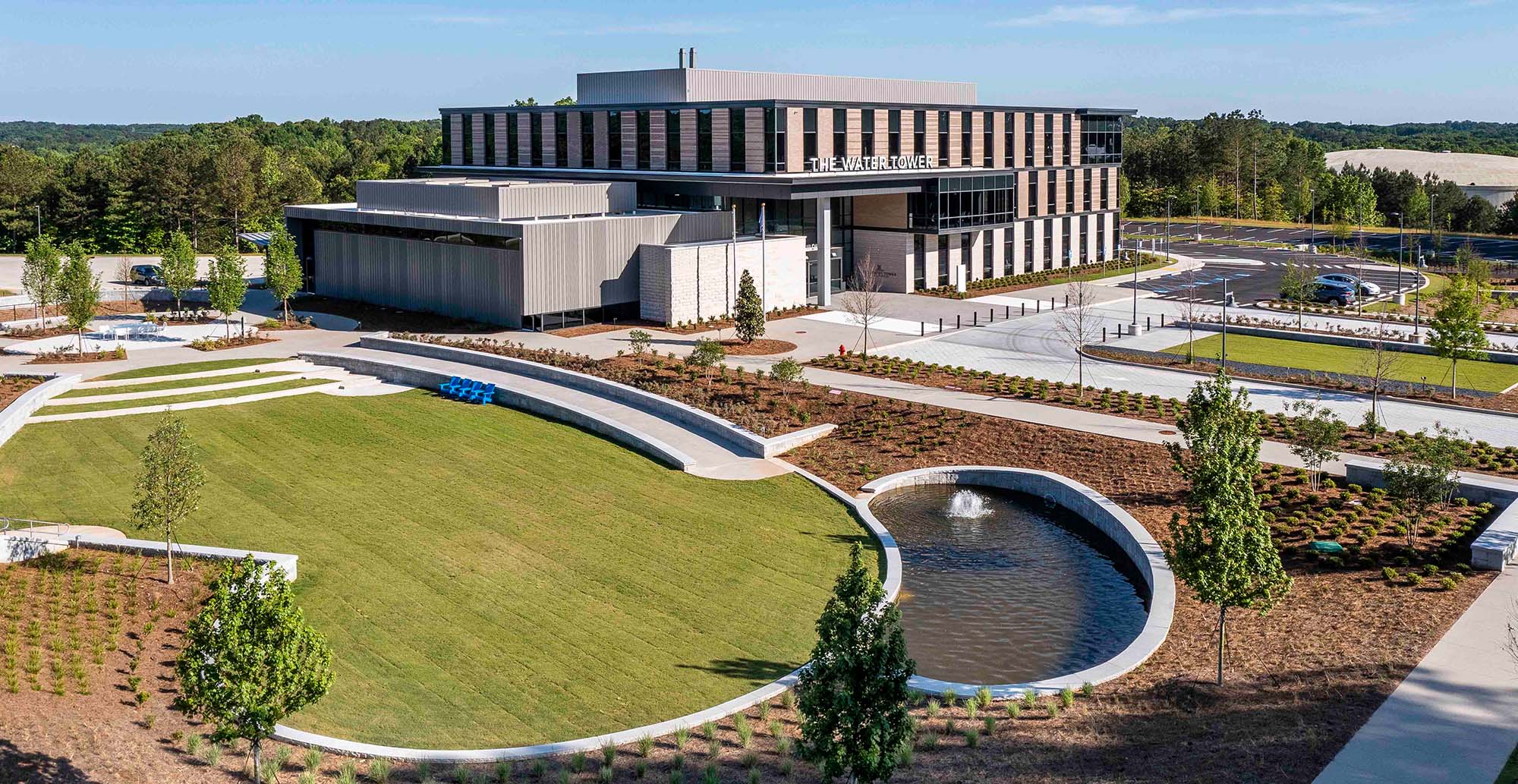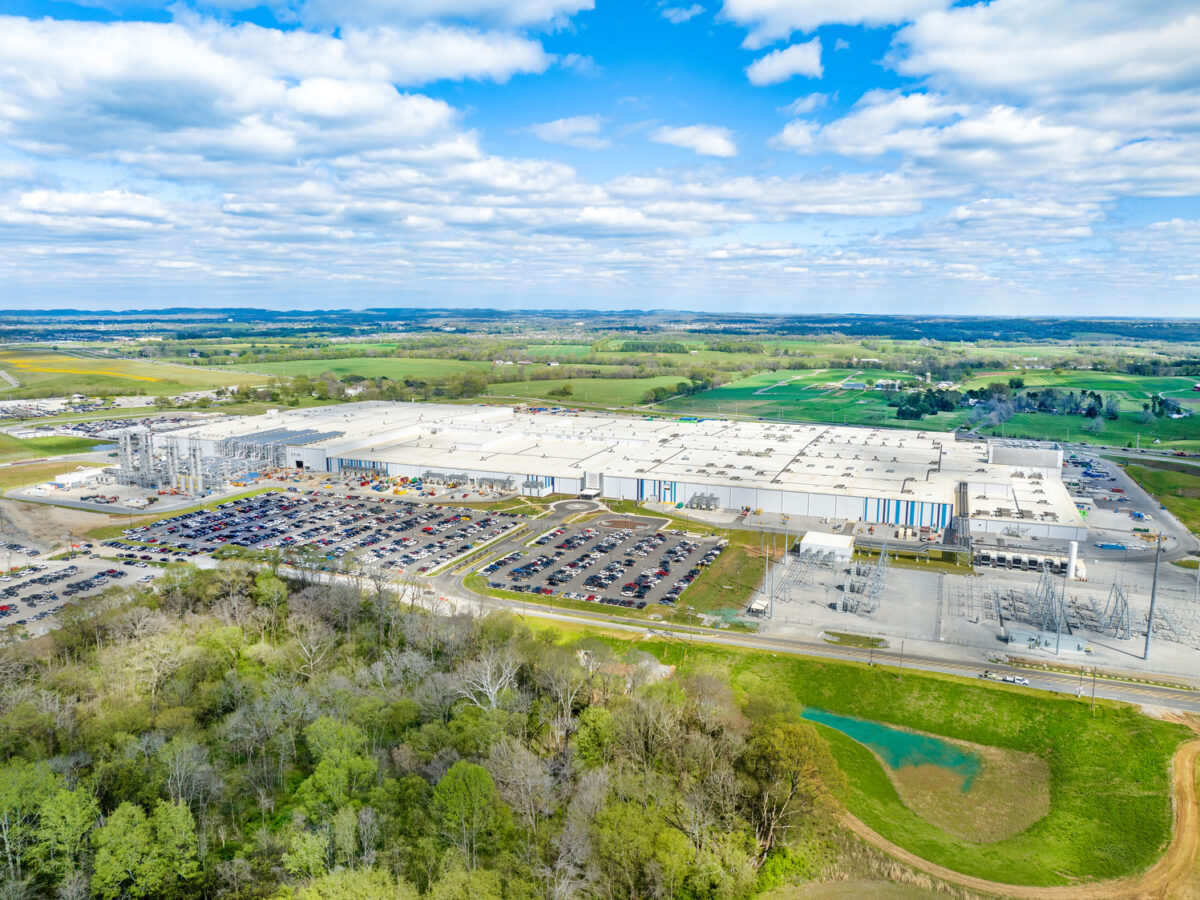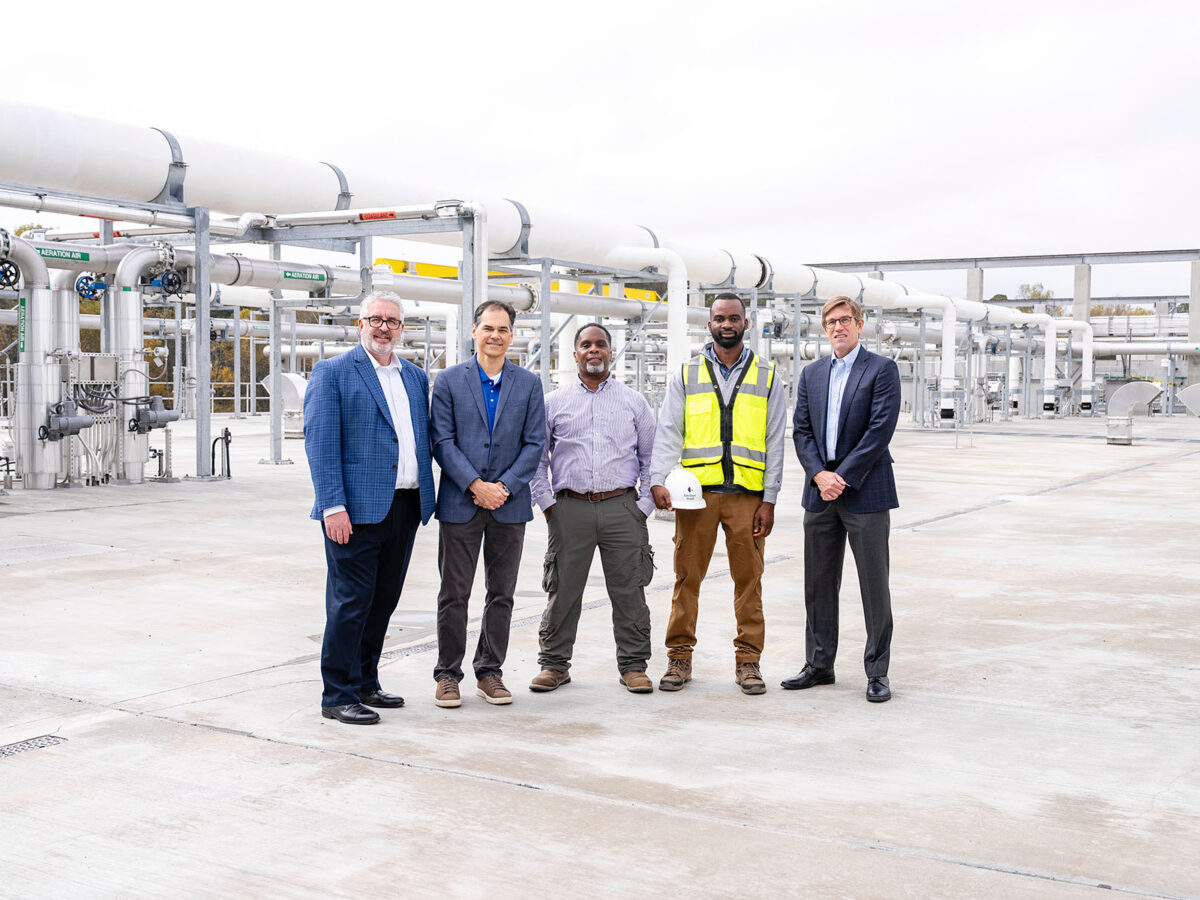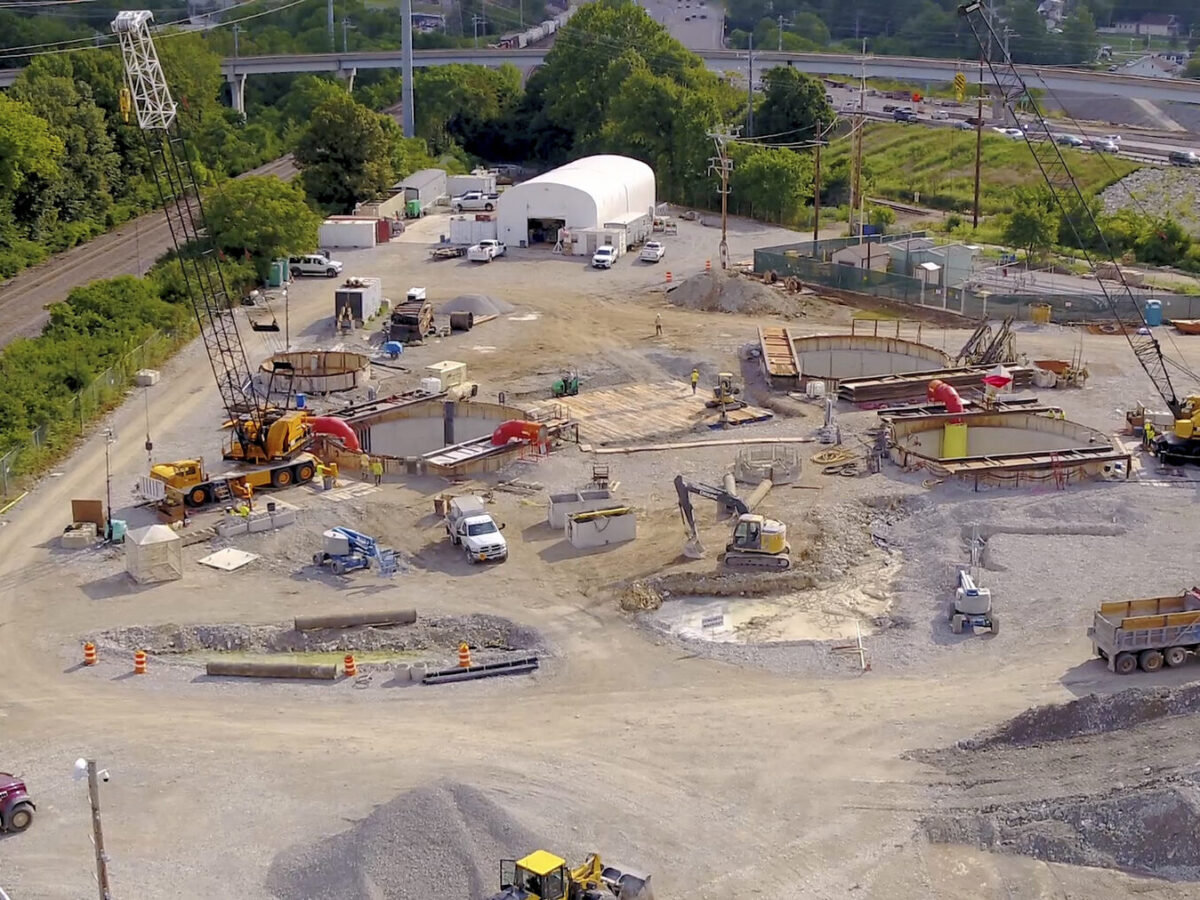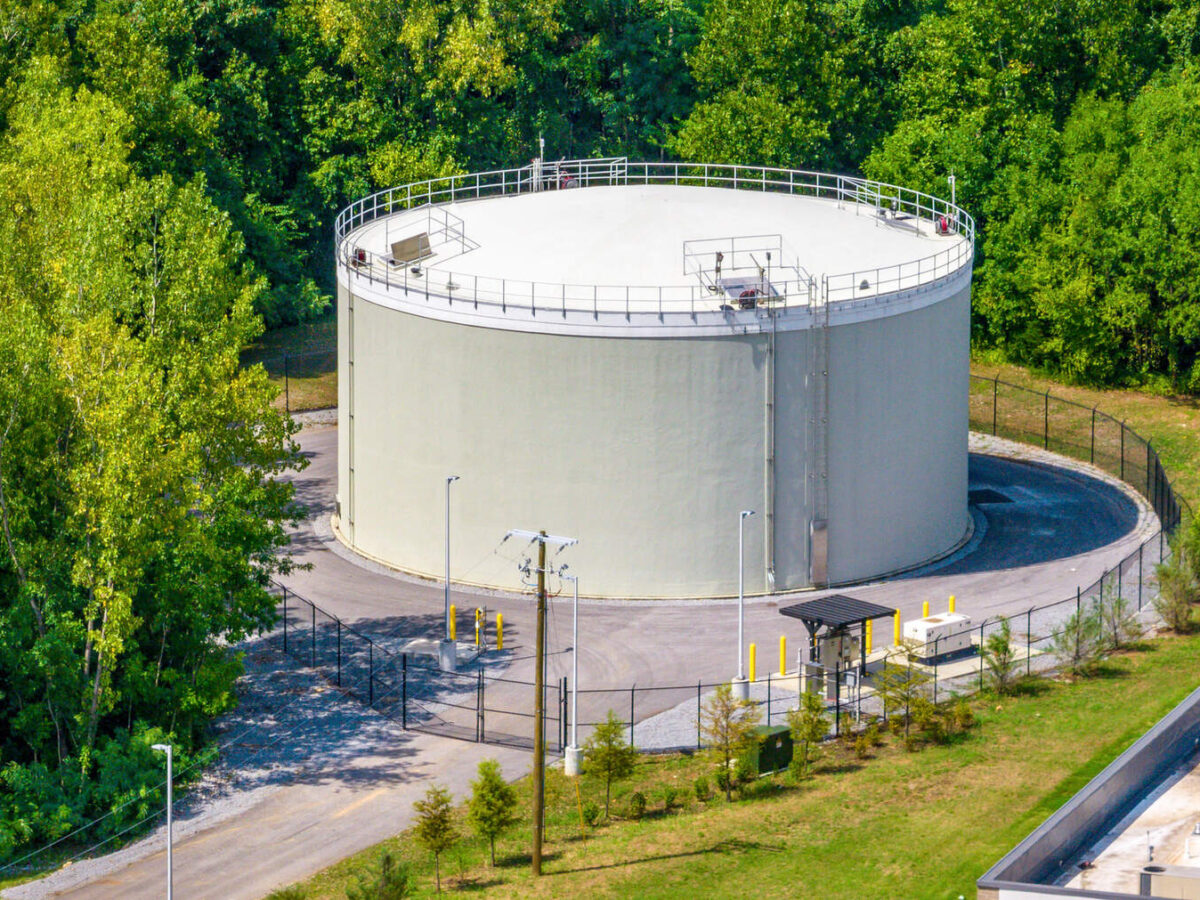Gresham Smith is proud to announce that the firm’s civil engineering work for Gwinnett County Department of Water Resources’ Water Tower Global Innovation Hub has been honored as a Project of Merit by the American Society of Civil Engineers (ASCE) Georgia section. The project team accepted the award at ASCE Georgia’s Annual Awards Banquet and Gala at Ponce City Market on Friday, June 10.
Named after the County’s iconic water towers that once lived along I-85, the innovation campus brings together utilities, technology providers, educational institutions and other industry partners to create a thriving ecosystem of water innovation fueled by imagination, informed by research and powered by pioneers.
“The Water Tower is a destination for all things water, so we knew the site needed to reflect that,” said Gresham Smith Senior Civil Engineer Rob Whitson, P.E. “We incorporated green infrastructure that functions to improve water quality and runoff while also using the stormwater as a design element for water features and landscaped areas that create gathering spaces for visitors. We’re honored that ASCE Georgia has recognized our work and look forward to the ways The Water Tower will serve Gwinnett County for decades to come.”
The 55,000-square-foot, three-story building houses office and collaboration spaces, classroom and meeting spaces and a large multi-purpose space, as well as multiple laboratories for studies, experiments and tests. Gresham Smith’s civil engineering team designed the site to sustainably manage stormwater by promoting infiltration and Low Impact Development to improve water quality. Additionally, they incorporated a boardwalk over a semi-aquatic planting area, an amphitheater, water feature, and bioretention ponds. The site work also supports a conveyance network, which brings various process streams from F. Wayne Hill Water Resources Center to support bench-scale and pilot-scale studies.
ASCE Georgia’s annual awards program recognizes projects that demonstrate engineering ingenuity and advance the engineering profession. Entries are rated on the basis of contribution to the well-being of people and communities; resourcefulness in planning and solving design challenges; pioneering in use of materials and methods; unique approaches and partnerships; impact on the physical environment; and innovations in construction.
